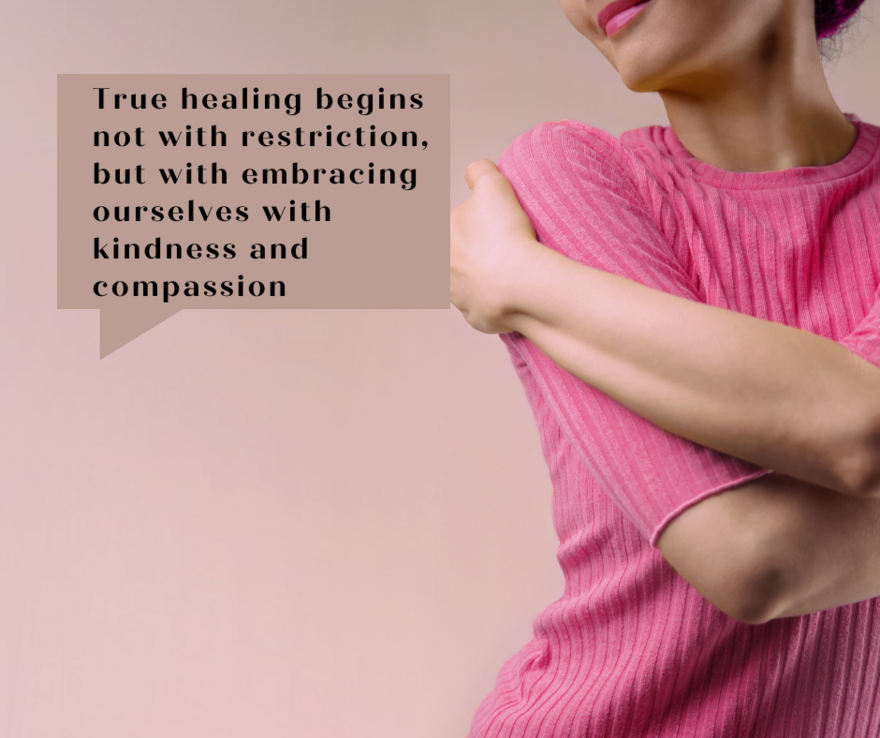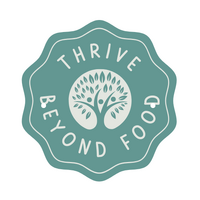
Today marks the beginning of something new, and I’m so glad you’re here. I’ve decided to change things up and offer you two letters each week instead of just one. My focus will be on understanding why diets haven't worked in the past and, more importantly, how it's not your fault. Through this, my hope is to help you achieve your wellness goals and to bring you closer to the life you truly deserve.
For many of us, the cycle is all too familiar. We start a diet, we lose weight, and for a time, it feels like we’ve finally found the key to wellness. But then, gradually or suddenly, old patterns creep back in, and the weight returns—often with a bit more than before. Each time this happens, we feel defeated, blaming ourselves, believing the failure is ours alone. But what if the problem wasn’t a lack of willpower? What if the issue isn’t with the diet at all, but something much deeper?
The reality is, lasting change doesn’t come from restriction, deprivation, or sheer discipline. True transformation begins with understanding: Why do we turn to food for comfort? What drives us to overeat or crave processed foods, even when we know they don't serve us? These are questions that diets fail to address. They don’t explore why we use food to cope with emotional pain or discomfort. And until we dig into these deeper motivations, the cycle will continue.
I recently experienced a moment that beautifully illustrated this. In a wave of overwhelm—shoulders tight, breath shallow, mind racing—I instinctively wrapped my arms around myself, holding tight as though I needed to keep myself together. The simple act of hugging myself was transformative. My breath deepened, my body softened, and an unexpected wave of comfort washed over me. It wasn’t anything dramatic, but it reminded me of something powerful: We have the ability to care for ourselves in moments of distress.
This self-compassion is so often overlooked, yet it’s essential in the healing process. So much of the time, we seek reassurance from others, hoping someone will tell us we're okay. While connection with others is vital, it’s equally important to be that safe, steady presence for ourselves. A gentle touch, a deep inhale, a quiet word of kindness—these small moments of self-compassion send a profound message: "I am here for you."
When we struggle with food, it’s common to feel disconnected from our bodies, almost as though they are betraying us or working against us. But the truth is, our bodies respond to kindness, not punishment. When we recognize our own pain and offer ourselves comfort—not through food, but through presence—we begin to heal the deeper wounds that diets could never reach.
Research supports this idea. A study by Kristin Neff, a leading researcher on self-compassion, found that individuals who practiced self-compassion were better able to manage emotional distress, recover from failures, and experience lower levels of anxiety and depression. This is powerful when it comes to recovery from emotional eating, where emotional distress often triggers overeating. In her research, Neff highlights that self-compassion helps individuals build resilience, ultimately leading to healthier coping mechanisms that don’t rely on food (Neff, 2003).
In addition, the science of neuroplasticity shows that our brains can rewire themselves through experiences of kindness and self-care. When we practice compassionate behaviors toward ourselves, we create new pathways in the brain that allow us to respond to stress with more calm and clarity. This is a key piece of the recovery journey—learning to be kind to ourselves, especially when it’s difficult.
True recovery isn’t about finding the perfect diet. It’s about finding ourselves—our true selves. It’s about recognizing that food was never the real issue. The real issue lies in how we’ve learned to cope with stress, loneliness, and discomfort. When we bring compassion into the equation, we shift the focus from the food to the emotional and psychological roots of the behavior.
As we walk this healing journey together, let’s remember that the path forward isn’t about restriction or perfection. It’s about embracing ourselves with kindness and compassion. Let’s practice extending the same warmth and understanding to ourselves that we so freely offer to others. Because true healing begins not with dieting, but with loving ourselves—just as we are.
References:
- Neff, K. D. (2003). The Development and Validation of a Scale to Measure Self-Compassion. Self and Identity, 2(3), 223-250.

Comments